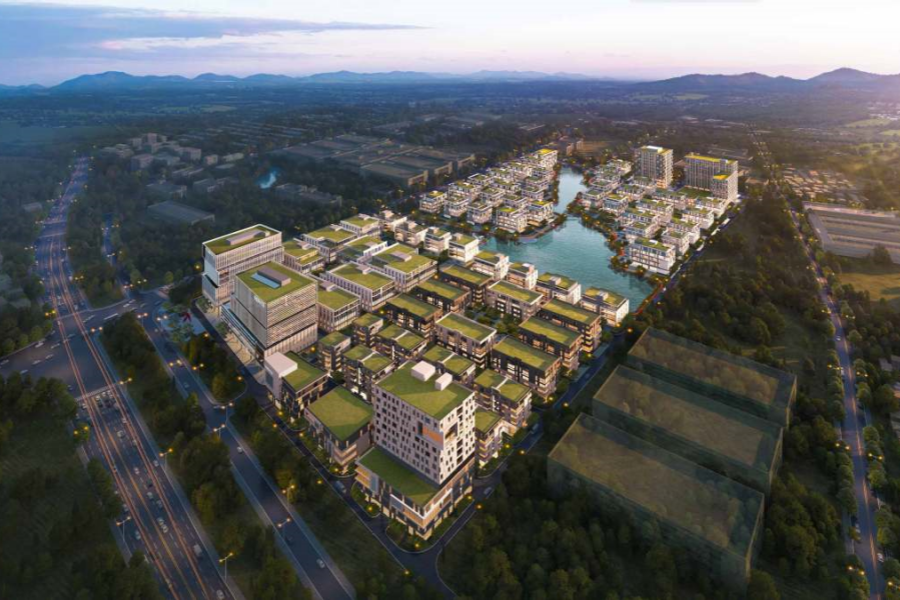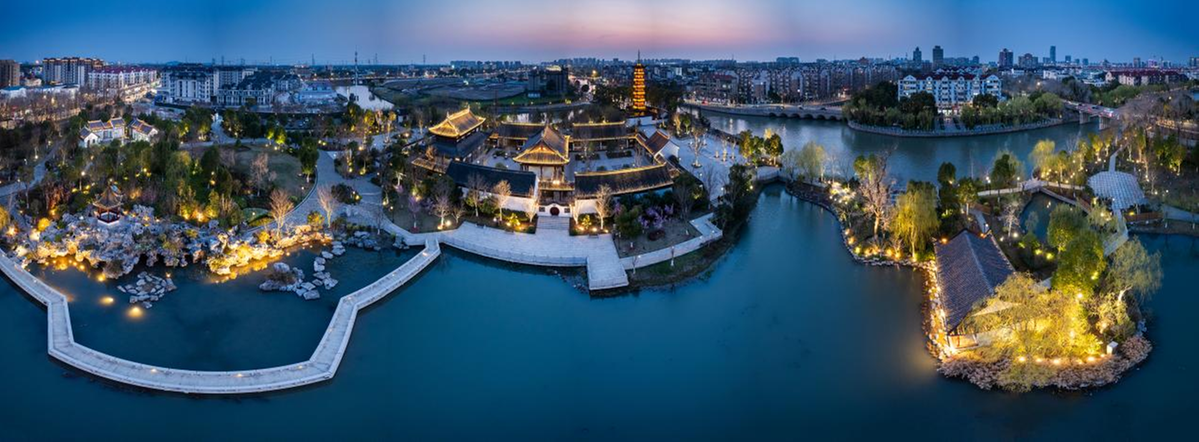Shanghai drives development of 'new cities' with targeted action plan

Shanghai is spearheading the development of five "new cities" that promise to blend cutting-edge technology with serene waterscapes, creating vibrant hubs that integrate innovation with cultural heritage. This ambitious vision is part of Shanghai's strategic plan to optimize the city's spatial layout and extend its influence across the Yangtze River Delta.
The strategic plan, launched in 2021, aims to transform five suburban towns — Jiading, Qingpu, Songjiang, Fengxian and Nanhui — into independent node cities of the Yangtze River Delta by 2035. Situated in a circular formation around the Shanghai urban center from northwest to southeast, these "new cities" are set to become comprehensive, self-sufficient urban centers.
The recent unveiling of the 2025 Shanghai Development Action Plan for "New Cities" signals the city's accelerated efforts to shape these areas into independent, thriving node cities. The action plan, led by the Shanghai Municipal Development and Reform Commission, outlines eight key initiatives across four critical areas to drive the transformation of these new cities.
Chen Shiyan, deputy director of the Shanghai Municipal Development and Reform Commission, underscored the importance of collaboration between municipal and district-level authorities in implementing the action plan. She emphasized a "bottom-up approach," where municipal departments actively engage in policy development, resource allocation, and support for the districts.
A central focus of the plan is to enhance the industrial landscape of each new town by developing specialized, niche industries tailored to their strengths. From medical devices and high-end equipment in Jiading to Beidou navigation and low-altitude economy in Qingpu, each town is carving out its unique industrial pathway to foster collaboration and resource utilization.

Qingpu New Town serves as a prime example of Shanghai's new town strategy, aiming to showcase aesthetic appeal, Jiangnan culture, innovation, and a welcoming community. Zhu Zhongwei, deputy governor of Qingpu district, highlighted the district's commitment to integrated development across industry, city and people, focusing on key areas such as the central business district, urban renewal demonstration area, future new town model area, and industrial innovation park.
Qingpu is actively promoting the integration of industry and education, refining industrial policies, and improving essential public services. The district has partnered with Fudan University to establish the Fudan Qingpu Innovation Center, emphasizing innovation and collaboration in the new town.
Furthermore, Qingpu is enhancing urban spatial quality, upgrading transportation systems and elevating environmental standards to create a sustainable and livable environment. The district is also focusing on cultural enrichment and improving quality of life by integrating cultural, tourism, commercial, sports, exhibition and agricultural resources.
The press event included site visits showcasing Qingpu's efforts to create thriving communities and innovative ecosystems. From eMobile Park, a hub for mobile internet industries, to the Brave Youth Sports Club and the China Eastern Technology Application Research and Development Center, Qingpu is demonstrating its commitment to fostering innovation, culture, and sustainable development in its new town.
As Shanghai drives the development of these "new cities," the city is setting a new standard for urban planning and development, aiming to create dynamic, self-sustaining urban centers that harmonize technology, culture, and nature for the benefit of residents and visitors alike.